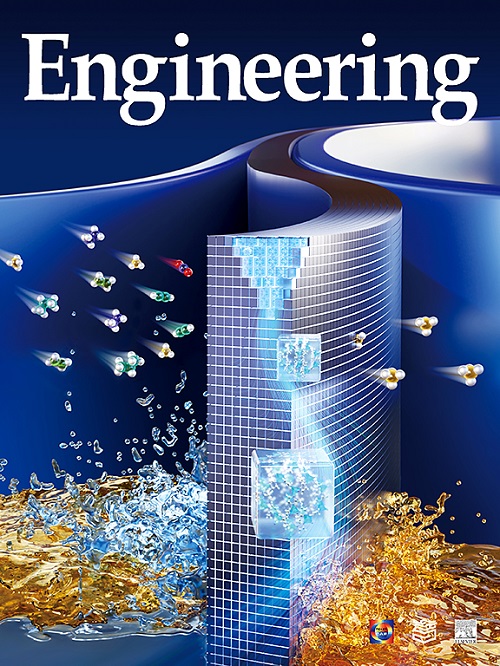不确定的跨部门气候行动可能削弱中国电力和乘用车行业减少空气污染的共同效益
IF 11.6
1区 工程技术
Q1 ENGINEERING, MULTIDISCIPLINARY
引用次数: 0
摘要
针对特定行业的气候行动因其对空气污染的协同效益而得到广泛认可。然而,跨部门气候行动中的不确定性可能削弱或逆转这些共同效益。本研究通过整合车队模型和发电厂模型,量化了乘用车(PC)和电力部门不确定的气候行动对空气污染物(AP)排放的潜在负面影响。我们的研究结果表明,与维持2020年的行动水平相比,跨部门气候行动的不确定性,特别是当车队电气化落后于汽车行业在所有电力部门转型情景中的理想转型路径时,预计将导致2050年电力和PC部门的氮氧化物排放量最大增加~ 120%,颗粒物排放量最大增加~ 635%。此外,电动汽车用电产生的间接AP排放沿着电力供应链被重新分配到严重依赖燃煤发电的省份,如内蒙古、山西、山东和贵州,从而导致减少空气污染的共同效益显著损失。我们强调有必要从目前以单一部门为导向的气候缓解政策框架转向跨部门综合视角。具体而言,在短期内减少汽车使用需求和加强燃煤电厂的AP排放控制至关重要,同时加快电力部门的可再生能源转型作为一项长期战略,以有效提高空气污染控制的协同效益,以应对政策实施过程中的不确定性。本文章由计算机程序翻译,如有差异,请以英文原文为准。
Uncertain Cross-Sector Climate Actions Could Undermine Air Pollution Reduction Co-Benefits in China’s Power and Passenger Car Sectors
Sector-specific climate actions are widely recognized for their air pollution co-benefits. However, uncertainties in cross-sector climate action may weaken or reverse these co-benefits. This study quantified the potential negative impacts of uncertain climate actions in the passenger car (PC) and power sectors on air pollutant (AP) emissions by integrating a fleet model with a power plant model under various infrastructure-level transition pathway combinations. Our results show that uncertainties in cross-sector climate actions, particularly when fleet electrification lags behind the car sector’s ideal transition pathway across all power sector transition scenarios, are projected to lead to a maximum increase of ∼120% in nitrogen oxide emissions and ∼635% in particulate matter emissions from the power and PC sectors in 2050, compared to maintaining the 2020 action levels. Additionally, the indirect AP emissions from the electricity use of electric cars are reallocated to provinces that rely heavily on coal-fired power, such as Inner Mongolia, Shanxi, Shandong, and Guizhou, along the power supply chain, thereby leading to significant losses in air pollution reduction co-benefits. We highlight the necessity of shifting from the current single-sector-oriented climate-mitigation policy framework to a cross-sector-integrated perspective. Specifically, it is crucial to reduce car use demand and enhance AP emission control for coal plants in the near term, while accelerating renewable energy transition in the power sector as a long-term strategy to effectively enhance air pollution control co-benefits in response to uncertainties during policy implementation.
求助全文
通过发布文献求助,成功后即可免费获取论文全文。
去求助
来源期刊

Engineering
Environmental Science-Environmental Engineering
自引率
1.60%
发文量
335
审稿时长
35 days
期刊介绍:
Engineering, an international open-access journal initiated by the Chinese Academy of Engineering (CAE) in 2015, serves as a distinguished platform for disseminating cutting-edge advancements in engineering R&D, sharing major research outputs, and highlighting key achievements worldwide. The journal's objectives encompass reporting progress in engineering science, fostering discussions on hot topics, addressing areas of interest, challenges, and prospects in engineering development, while considering human and environmental well-being and ethics in engineering. It aims to inspire breakthroughs and innovations with profound economic and social significance, propelling them to advanced international standards and transforming them into a new productive force. Ultimately, this endeavor seeks to bring about positive changes globally, benefit humanity, and shape a new future.
 求助内容:
求助内容: 应助结果提醒方式:
应助结果提醒方式:


